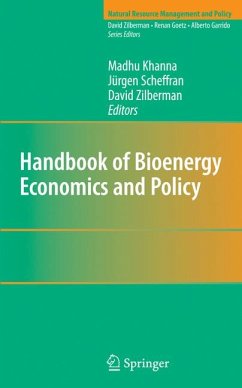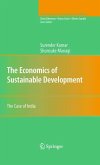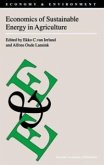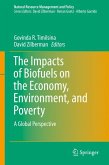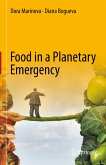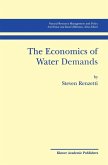The book is organized into five parts. The introductory part provides a context for the emerging economic and policy challenges related to bioenergy and the motivations for biofuels as an energy source. The second part of the handbook includes chapters that examine the implications of expanded production of first generation biofuels for the allocation of land between food and fuel and for food/feed prices and trade in biofuels as well as the potential for technology improvements to mitigate the food vs. fuel competition for land. Chapters in the third part examine the infrastructural and logistical challenges posed by large scale biofuel production and the factors that will influence the location of biorefineries and the mix of feedstocks they use. The fourth part includes chapters that examine the environmental implications of biofuels, their implications for the design of policies and the unintended environmental consequences of existing biofuel policies. The final part presents economic analysis of the market, social welfare, and distributional effects of biofuel policies.
Dieser Download kann aus rechtlichen Gründen nur mit Rechnungsadresse in A, B, BG, CY, CZ, D, DK, EW, E, FIN, F, GR, HR, H, IRL, I, LT, L, LR, M, NL, PL, P, R, S, SLO, SK ausgeliefert werden.

